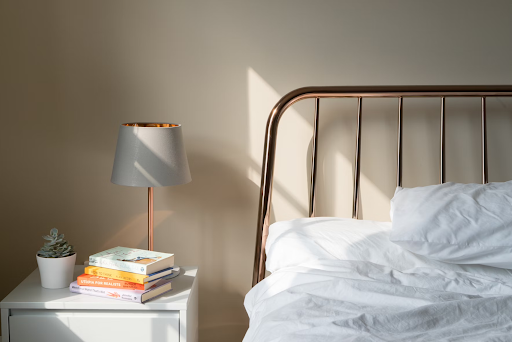Soothing Sounds to Help You Sleep at Night

Author: Jonathan Warren
Do you struggle to get to sleep at night? You’re not alone. Finding it difficult to switch off can happen for a number of reasons: too much caffeine, stress and worry, a noisy neighbourhood, or an ongoing battle with insomnia… Whatever the reason, not getting the rest your body requires can seriously affect your health.
NHS reports that side effects of sleep deprivation include long-term mood disorders such as anxiety and depression. It also reports lack of sleep possibly leading to major health issues such as obesity, heart disease and diabetes.
Listening to soothing sounds can be a good way to drown out external noise or internal worries and help you get to sleep at night. In this article, we’ll run through some of the best sounds to listen to, to get some shut eye.
What’s the science behind sounds that make you sleep?
Sound therapy is something that has been used for centuries to detoxify, heal and clear emotional blockages. Long before we had stereophonic technology, ancient gongs and bowls were used to soothe and calm. But are there really sounds that make you sleep better?
According to science, sound can affect us physiologically, impacting everything from our cognition and behaviour to overall health. The modern-day world is full of noise, most of which we learn to tune out due to constant exposure. However, these background noises still shape what we do and how we act - sounds can trigger hormone secretions which influence our breathing, heart rate and brain waves.
A number of studies have shown that natural sounds have the ability to lower levels of cortisol (the stress hormone), while also increasing the parasympathetic response (the rest-digest response), lowering heart rate and slowing down breathing, creating a perfect state to doze off nicely.
These are the best sounds to help you sleep
Finding the right noises to help you sleep means going back to nature. Sounds of trickling water, light patters of rain, or wildlife noises such as bird song can put you in a relaxed, meditative state.
It may take trialling a few different sounds before you find one which sends you to sleep. There are plenty of free apps and online videos of different sleep sounds available; here are some of the best sleep-inducing noises to try out:
Ocean waves
The ocean is commonly touted as a soothing sound to sleep to, which is down to the waves rolling in and out at roughly 12 cycles per minute. As this aligns with our breathing, which is naturally around 12 times per minute, the waves can help get both body and mind ready to sleep.
Crackling fire
Another extremely soothing sound is the sound of a log fire or campfire. There’s something incredibly mesmerising about watching a steady fire burn in the night, and the same feelings can be conjured up just by listening to crackling flames.
Playing campfire sounds for sleep can help you zone out of a disruptive environment. This is because fire is a natural source of white noise and impulse noise combined, calming and soothing you at the end of a hectic day.
Bird song
Chirping birds are often associated with early mornings, but the melody of bird song is actually perfect for night time and can help you get to sleep. This may in part be to do with the connotations of having birds around; over the centuries, humans have learnt that when birds are singing, the area is safe. Listening to birds singing could therefore help the brain to relax.
White noise
Many baby sleep aids and sleep toys now feature a white noise button. This is because white noise is consistent across all audible frequencies. Essentially, the consistency creates a mask, blocking out all other background commotion. If you have a partner who snores or a dog that barks in the middle of the night, white noise could be ideal for helping you snooze.
Pink noise
Just like white noise, pink noise works very much in the same way. It’s another, recently discovered broadband sound that appears very similar at first, but with the bass turned up. Due to the bass frequencies being louder, higher frequencies are turned down, creating the perfect balance for relaxation. Not only does it improve your sleep, but some scientists believe that it may boost your memory too.
Is there any music that will put me to sleep?
As well as nature sounds and white or pink noise, there are certain types of music that can help in sending you off to dreamland. Think about the lullabies that are played to babies and young children - this kind of music is extremely relaxing and can help to soothe the mind to help get to sleep.
For adults, music without words will help you doze off faster, as words can stimulate your mind instead of switching it off. Classical music can be helpful for some, but of course everyone is different. Some people prefer white noise or pink noise because of the consistent, meditative sound.
Another type of music to try is music with binaural beats. Binaural therapy is a new type of soundwave therapy that involves the right and left ears listening to slightly different tones but perceiving them as one. The binaural beats are said to activate systems within the brain, affecting people in different ways depending on the frequency used.
Binaural music in the theta range (4 to 8 Hz) are linked with REM sleep, while alpha frequencies (8 to 13 Hz) are believed to relax and reduce anxiety and stress.
Other tips for a good night’s sleep
As well as exploring different sounds to help you sleep, here are some things you can do to improve your sleep quality.
Invest in a good quality mattress
Select the right mattress for your body type and personal preference. Consider mattress firmness, size and depth, and whether you want memory foam, latex or pocket sprung.
Keep technology out of the bedroom
Reduce your amount of blue light exposure in the evening as it can negatively impact your circadian rhythm. Keep laptops and tablets out of the bedroom, and spend the hour before bed reading a book or meditating instead.
Stick to a routine
The human body thrives on routine, so try to sleep and wake around the same time every day. Avoid sleeping in too long at weekends, and skip the naps so your sleeping hours are more regimented.
Have a caffeine curfew
Avoid consuming caffeine too late in the day. If drinking coffee and tea affects your sleep, make sure you switch to decaf after midday so you don’t struggle when it comes to bed time



